Cognition in Primary Care (CPC) is a program to facilitate detection of cognitive impairment and improve care for people with dementia.
The aims of this program are to:
- Provide education for primary care to efficiently evaluate cognition, identify cognitive impairment, and improve patient care.
- Improve connections between patients, families, and community resources.
- Develop clinic-based tools and workflows which are adapted from the GSA-KAER Toolkit.
Project Team

Barak Gaster, Director
Barak Gaster, MD, is a dementia expert and primary care physician with more than 20 years experience as a clinician, teacher, and leader in clinic process improvement. A professor of medicine and a member of the leadership committee selected to develop the latest iteration of the CDC’s national Healthy Brain Roadmap, he is also a co-investigator at the UW Alzheimer’s Research Center, a member of the Hastings Center Workgroup on dementia, and is the author of the Dementia Directive which has been downloaded 150,000 times and been featured in the New York Times and on NPR.

Annette Fitzpatrick, Co-Principal Investigator
Annette L. Fitzpatrick, PhD, is the Co-Principal Investigator of the CDC project which provides funding for Cognition in Primary Care. She is an epidemiologist and Research Professor in the Departments of Family Medicine, Epidemiology, and Global Health. She has been working in the field of aging for over 30 years with a focus on dementia and cognitive function as well as cardiovascular disease (CVD) and its risk factors. She has provided leadership to over 35 NIH/CDC-sponsored studies over her career and considers CPC to be the most critical in terms of its impact on older adults.
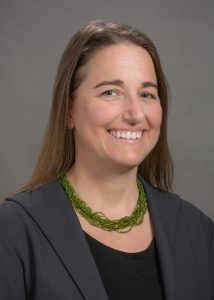
Jaqueline Raetz, Co-Principal Investigator
Jaqueline Raetz, MD, is the Co-Principal Investigator of the CDC project which provides funding for Cognition in Primary Care. She is an associate program director at the University of Washington Family Medicine Residency. As a geriatrics-trained family physician she has been teaching residents, fellows, and medical students how to care for older patients for over 15 years. In addition to her outpatient Family Medicine clinical practice at Harborview, she provides nursing home care through Harborview Post-Acute Care Services and inpatient palliative care at UW Medical Center.
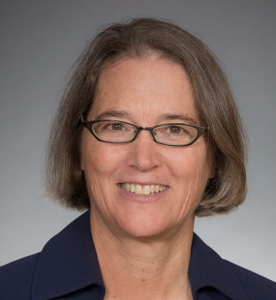
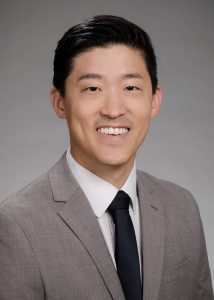
Basia Belza, Co-Investigator
Basia Belza, PhD, RN, FAAN, FGSA, is the Aljoya Endowed Professor at the UW School of Nursing and an Adjunct Professor at the School of Public Health. As an Investigator at the Health Promotion Research Center she served as lead of the CDC-funded Healthy Brain Research Network. Her program of research includes a focus on the dissemination and implementation of evidence- and community-based health promotion programs for older adults.
Joshua Liao, Co-Investigator
Joshua Liao, MD, MSc, is an internal medicine physician at UW where he serves as the Associate Chair for Health Systems in the Department of Medicine and faculty in the schools of School of Medicine and Public Health. He is also the enterprise-level Medical Director of Payment Strategy at UW Medicine, and an Adjunct Senior Fellow at the Leonard Davis Institute of Health Economics in the Wharton School at the University of Pennsylvania.
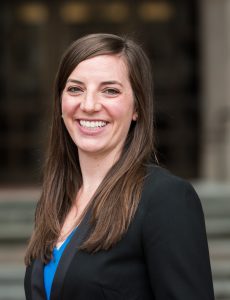
Monica Zigman Suchsland, Research Scientist
Monica Zigman Suchsland, MPH, PhD student, is a Research Scientist in the UW Medicine Department of Family Medicine and a PhD student in the UW School of Public Health Department of Epidemiology. She has worked extensively managing health research projects ranging from field studies to clinical trials. Her research interests include diagnostics, clinical evaluation, and data driven methods in primary care. Her dissertation research aims to improve understanding of the clinical course of concussion and time to recovery after a concussion injury.
Amy P. Hsu, Data Analyst
Amy Hsu, MS, is a data analyst. She has more than 15 years experience doing statistical clinical research analyzing complex data sets. She has a deep passion for exploring how healthcare research can inform decision-making to improve the health of the public.
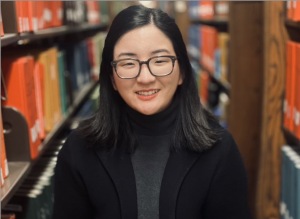
Sarah McKiddy, Research Coordinator
Sarah McKiddy is a PhD student at the University of Washington School of Nursing and the de Tornyay Center for Healthy Aging Pre-doctoral Scholar. Her research interests include cognitive health, reframing aging, and music-based interventions for individuals living with dementia and their care partners. Her background as a professional musician and educator combined with her training as a nurse catalyzed and influenced her pathway toward researching the intersections between music and health.
This project is supported by the Centers for Disease Control and Prevention of the U.S. Department of Health and Human Services (HHS) as part of a Special Interest Project award totaling $500,000 with 100 percent funded by CDC/HHS. The contents are those of the authors and do not necessarily represent the official views of, nor an endorsement by, CDC/HHS, or the U.S. Government.